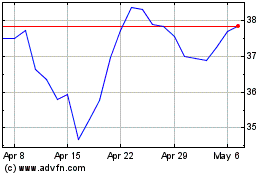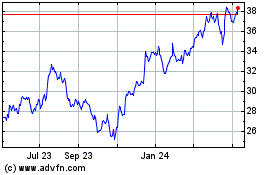The latest Better Money Habits® Millennial
Report finds:
- The majority of millennials are saving,
and they are more likely than other generations to say they have
savings goals.
- They are more likely than other
generations to ask for raises at work.
- One in four consider themselves to be
part of the gig economy.
- Nearly one in five does not know how
much their spouse makes.
Millennials are proving that they are just as good as or better
than older generations when it comes to money management habits
like saving and budgeting, according to the Better Money Habits®
Millennial Report released today. Millennials (ages 23 to 37) are
saving (63 percent), and they are more likely to say they have a
savings goal (57 percent) than members of Gen X (42 percent) and
baby boomers (42 percent). It’s not all talk, either: the majority
of millennials who have a savings goal meet it (67 percent).
Despite that, saving enough remains a top source of financial
stress for young adults, and 73 percent say they worry about money
often/sometimes. They’re just as worried about finances as they
were when surveyed in 2014, when three-quarters said they worried
similarly about money.
This stress is compounded by a misperception that millennials
aren’t savvy money managers. Roughly three quarters of Americans
surveyed (age 18 to 71) say that millennials overspend on
indulgences and will have trouble meeting long-term goals. Even
millennials themselves think so: the majority (73 percent) agree
with this characterization.
“Young adults deserve more credit – from others and themselves –
for the way they are handling their finances,” said Andrew Plepler,
global head of Environmental, Social and Governance at Bank of
America. “They’re on par with or even better than older
generations, which defies common stereotypes. As they continue to
take on more financial responsibility and set new goals, Better
Money Habits offers them resources and tools, like our Spending and
Budgeting tool, to achieve them.”
The data additionally shows that young adults’ attention to
savings and budgeting is growing:
- Forty-seven percent of millennials have
$15,000 or more in savings, and 16 percent have $100,000 or more in
savings. This is an improvement over just a few years ago: when
surveyed in 2015, only 33 percent had $15,000 or more saved, and
only 8 percent had $100,000 or more.
- Millennials are just as likely to
budget as older generations. Fifty-four percent of all millennials
plan and manage a budget, compared to 54 percent of Gen Xers and 57
percent of baby boomers. Roughly three-quarters of millennials who
budget stick to it.
Firmly part of a gig economy, millennials more likely to ask
for raises – and get them
As they build their careers, approximately one in four
millennials consider themselves to be part of the gig economy
(taking on short-term contracts or freelance work) and expect to
have eight or more jobs in their lifetime. While they are known as
job-hoppers, that’s not necessarily by choice. Twenty-six percent
of millennials report they have been laid off.
Perhaps as a result, more so than older generations, young
adults advocate for themselves at work. Forty-six percent have
asked for a raise in the past two years. Just 36 percent of Gen X
and 39 percent of baby boomers have done the same. They’re largely
successful, too. Eighty percent of millennials who asked for a
raise in the past two years got one.
At home, shared finances less common among millennial
couples
While millennials are likely to bring up the topic of salary at
work, that’s not always the case at home. Nearly one in five
millennials don't know how much their spouse/partner makes.
Millennial couples are more likely than older generations to keep
their finances separate – 28 percent of millennial couples keep
their finances separate compared to 11 percent of Gen Xers and 13
percent of baby boomers.
As parents, millennials are more likely to consider finances an
important factor when thinking about having children. Thirty
percent of millennial parents say financial considerations played a
major role in their decision to start a family, versus 22 percent
of Gen Xers and 9 percent of baby boomers. More than a quarter of
older millennials are already saving for their children’s
education.
While millennials are mindful of their finances both in their
home and work lives, there is always room for improvement. And,
importantly, millennials have time to make changes that can better
their financial futures. That’s why Bank of America created Better
Money Habits®, a free financial education platform with
easy-to-understand information and tools to navigate personal
finances, including:
- Savings and Budgeting resources, which
offer strategies and tips to better manage your money for yourself
or your family.
- The Spending and Budgeting tool, which
helps people track spending, set up budgets and identify ways to
save money.
- The Goal-Setting Tool, which began
rolling out in September, will enable people to create personalized
savings goals with names, pictures and target amounts so they can
watch their progress along the way and prioritize funds
accordingly.
In addition to these personal finance resources,
BetterMoneyHabits.com features a Careers and Personal Finance video
series from partner and education leader Khan Academy. The videos
feature young adults discussing how they are navigating their
working world and the financial considerations that come with it.
This content is designed to empower young adults – through the
voices of their peers – to make informed decisions about the
interplay between their income and their life priorities.
Combined, these resources help people understand their money and
take action to change their financial lives for the better.
Report methodologyBank of America commissioned a survey of 1,500
respondents, ages 18 to 71, to explore their views on personal
financial matters. The survey was conducted online in English and
Spanish during the period of September 22–October 16, 2017.
Interviews were conducted by GfK Public Communications and Social
Science, using GfK’s KnowledgePanel®, a statistically
representative sample source used to yield results that are
projectable to the American population. The margin of sampling
error for national data is +/- 3.1 percentage points at the 95
percent confidence level. An augment sample of approximately 2,025
additional interviews was also included to bring the millennials
found in the national sample up to 300 completes each in six DMA
markets including Austin, Texas; Raleigh-Durham, N.C.; San Diego,
Calif.; Pittsburgh, Pa.; Denver, Colo.; and Seattle, Wash. Margin
of error for the DMA augments are higher than that of the national
sample.
Note: Millennials were defined as ages 18 to 34 in the 2014 and
2015 reports and as ages 23 to 37 in the 2017 report.
Better Money Habits®At Bank of America, we’re committed to
helping people lead better financial lives by equipping them with
the skills, knowledge and confidence to succeed. That’s why we
created Better Money Habits, a financial education platform of
tools and information that helps people make sense of their money
and take action to improve. As a cornerstone of Better Money
Habits, we offer free financial education content and tools that
break down financial topics in a way that’s digestible,
approachable and tailored. We also work with the education
nonprofit Khan Academy on a video series for young adults focused
on career-related financial topics. We continually look for ways to
expand the reach of Better Money Habits and over the course of 2018
will offer Spanish language resources on the site.
Bank of AmericaBank of America is one of the world's leading
financial institutions, serving individual consumers, small and
middle-market businesses and large corporations with a full range
of banking, investing, asset management and other financial and
risk management products and services. The company provides
unmatched convenience in the United States, serving approximately
47 million consumer and small business relationships with
approximately 4,500 retail financial centers, approximately 16,000
ATMs, and award-winning digital banking with approximately 35
million active users, including approximately 24 million mobile
users. Bank of America is a global leader in wealth management,
corporate and investment banking and trading across a broad range
of asset classes, serving corporations, governments, institutions
and individuals around the world. Bank of America offers
industry-leading support to approximately 3 million small business
owners through a suite of innovative, easy-to-use online products
and services. The company serves clients through operations in all
50 states, the District of Columbia, the U.S. Virgin Islands,
Puerto Rico and more than 35 countries. Bank of America Corporation
stock (NYSE: BAC) is listed on the New York Stock Exchange.
For more Bank of America news, including dividend announcements
and other important information, visit the Bank of America newsroom
at http://newsroom.bankofamerica.com.
www.bankofamerica.com
View source
version on businesswire.com: http://www.businesswire.com/news/home/20180123005817/en/
Reporters May Contact:Kate Murphy, Bank of America,
1.980.387.0914kate.murphy@bankofamerica.com
Bank of America (NYSE:BAC)
Historical Stock Chart
From Mar 2024 to Apr 2024

Bank of America (NYSE:BAC)
Historical Stock Chart
From Apr 2023 to Apr 2024
